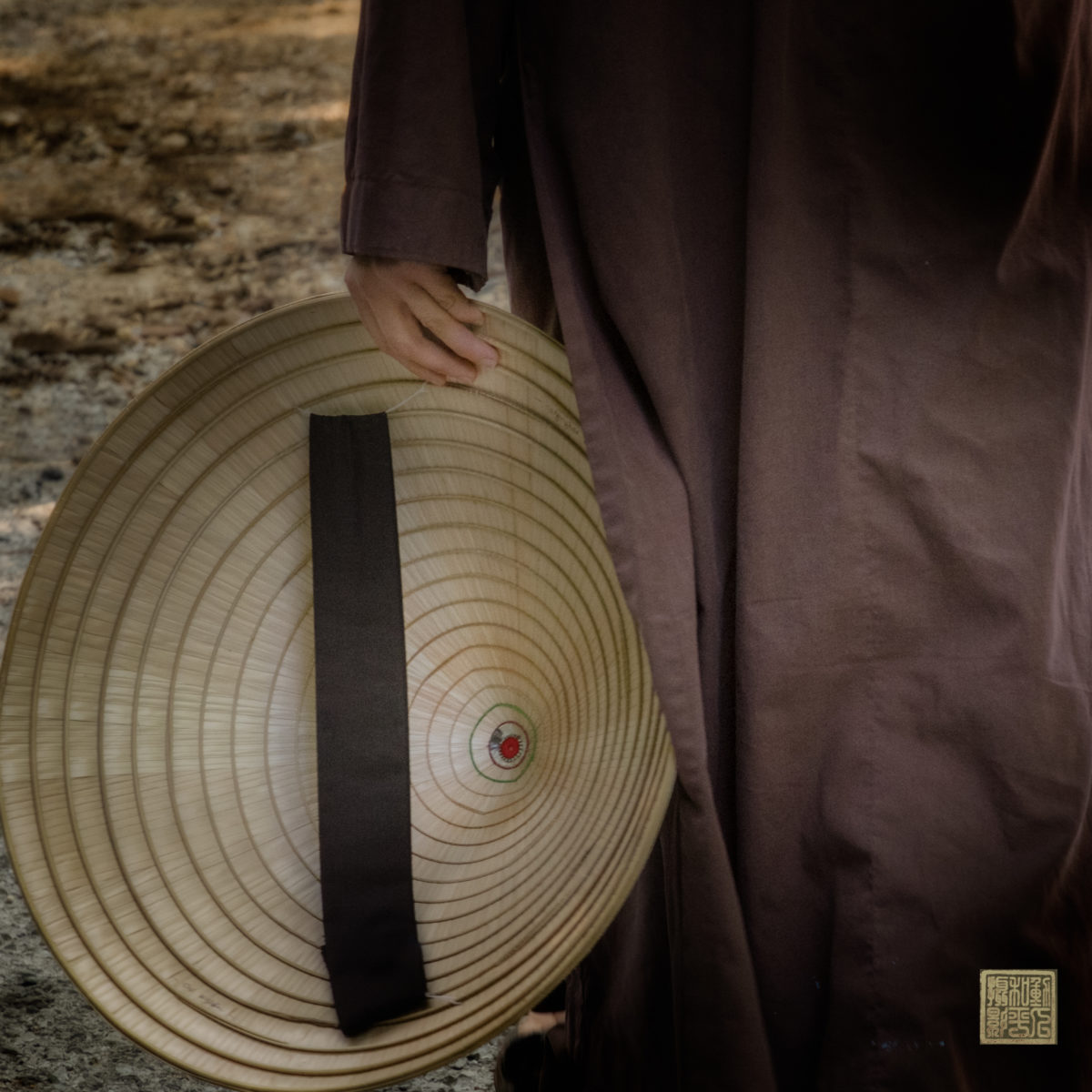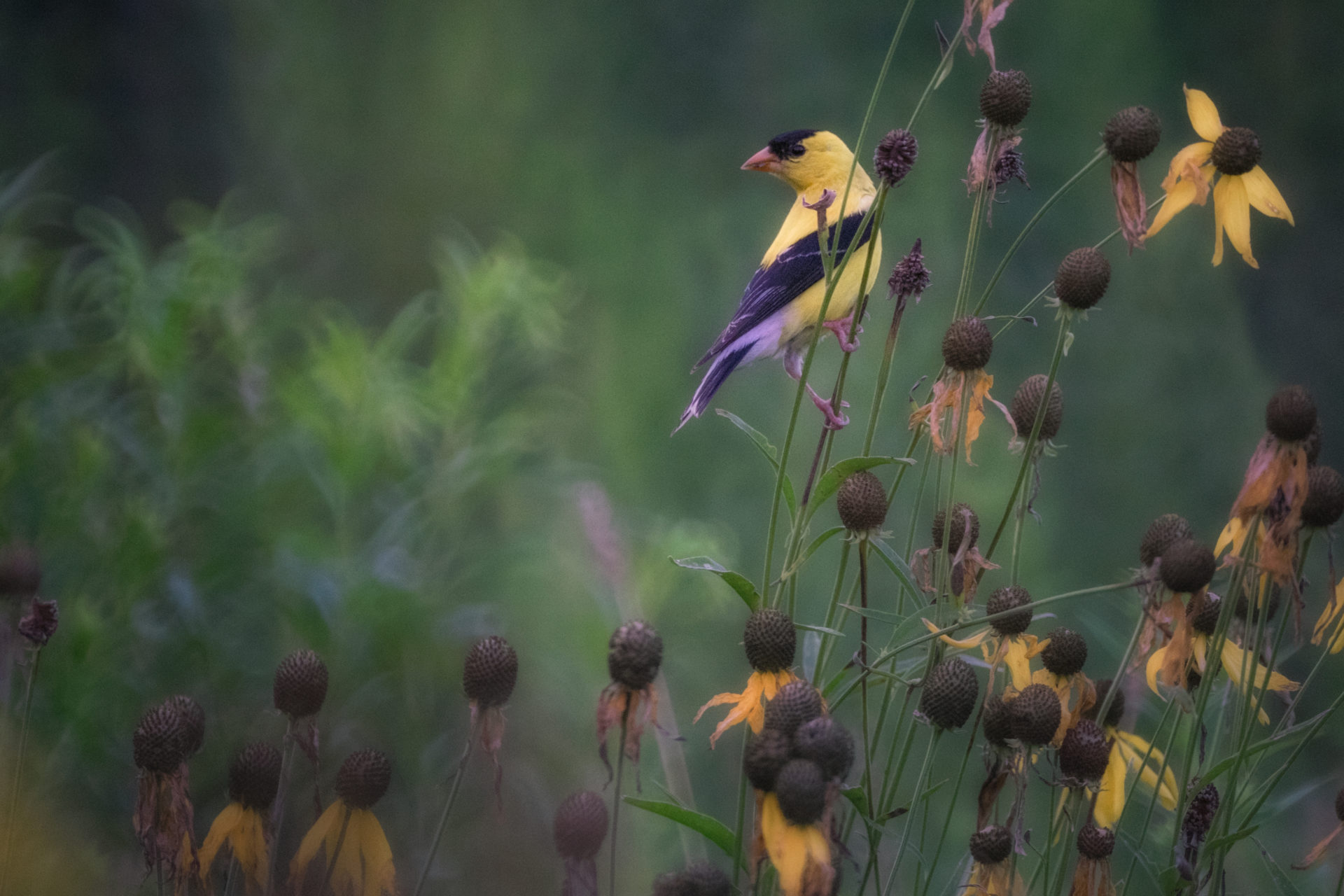By Thich Nhat Hanh
August 22, 2001
Deer Park Monastery

The purpose of practice is not to become a Dharma teacher; a Dharma teacher is nothing at all. It is not to become a Sangha leader; to be a Sangha leader does not mean anything at all. What is the use of being the head of the big temple if you continue to suffer deeply?
By Thich Nhat Hanh
August 22, 2001
Deer Park Monastery

The purpose of practice is not to become a Dharma teacher; a Dharma teacher is nothing at all. It is not to become a Sangha leader; to be a Sangha leader does not mean anything at all. What is the use of being the head of the big temple if you continue to suffer deeply? The purpose of practice is to become free and with your freedom, happiness is possible. With your freedom and happiness, you can help so many people for you have something to offer them. You don’t share your ideas or what you have accumulated from your Buddhist studies. Even professors of Buddhism may suffer deeply because Buddhist ideas have not helped them at all. What you need is freedom. Though Buddhist studies may be helpful, our happiness is the accumulation of peace, and not what we study and the authority we are given in the Sangha and in society. Many people in our society are not truly happy and many commit suicide. Our way should be different: it is the way of freedom.
Is it possible to be free? Looking into a practitioner, whether a Dharma brother, a Dharma sister, or your teacher, you can see how much freedom and happiness they have. We profit from their happiness and freedom, which is not based on authority or power. In a Sangha, we benefit from the opportunity to sit, walk, and smile, which are all aimed at stopping, at gaining freedom.
BUILDING THE SANGHA, BUILDING YOURSELF
What is the meaning of wearing a brown jacket? It’s not to declare that I am an ordained member of the Order of Interbeing. That’s nothing. It’s like the value of a student identity card: you got into a famous university and you were given a student identity card but if you don’t study, what is its value? Its value is to access the library and to go to classes, to have professors and the means to study. When you are ordained, you receive the Fourteen Mindfulness Trainings and the jacket. These are identity cards, which allow us to profit from the Sangha, from the teaching, from the practice.
There are Dharma centers, there are monasteries, there are teachers, there are Dharma brothers and sisters who practice. Being a member of the Order of Interbeing helps us to profit from all these in order to advance on our path of freedom. With enough freedom we can make others around us happy. We know that practicing without a Sangha is difficult so we try our best to set up a Sangha where we live. To be an OI member is wonderful. To be a Dharma teacher is wonderful, not because we have the title of OI membership or of Dharma teacher, but because we have the chance to practice and to organize.
As an OI member you have to organize the practice. Otherwise, it does not mean anything to be an OI member. You are expected to organize the practice in your area—for five people, six people, ten people, twenty people—and to practice reliably, locally and sometimes at a national level. You have to take care of the Sangha and support the Sangha because the Sangha is what supports you in your practice. So building the Sangha means building yourself. As a Sangha builder you enjoy the opportunity to practice.
Being a Dharma teacher is also an opportunity to practice—you cannot not practice! You need to practice so that your teaching has content. How can you open your mouth and give the teaching if you don’t do it yourself? The teaching is an opportunity: even if you are not an excellent teacher yet, being a Dharma teacher helps when you speak about the Dharma, for you have to do what you are sharing, otherwise it looks odd. It’s like a monk living with other monks; when everyone is doing walking meditation, it looks strange if that monk does not do the practice. As a Dharma teacher, you have a great opportunity to practice.
Every member of the Sangha can create favorable conditions for you, whether that member is good at the practice or not. A person who has a strong practice may inspire you to be like him or her, and someone who is weak in the practice may draw you to help them. So being a Dharma teacher is a good thing.
It would be strange if you got the transmission and you got a jacket and you didn’t build a Sangha to practice with. It would be like getting a student ID and never going to the library or the classes, saying: “You know I am a student of that famous university.” Sangha building is our practice.
EMBRACING DIFFICULT PEOPLE
Sangha building means to identify and help each member of the Sangha to join the practice. You are like a gardener: you care for and help the growth of every member of the Sangha. There will be members who are easy to be with and to deal with, and there will be members who are difficult to be with and to deal with, but as a Sangha builder you have to help everyone. There will be members of the Sangha whose presence you can enjoy deeply. There will be other members of the Sangha with whom you have to be very patient.
Please don’t believe that every monastic or layperson in Plum Village is equally easy for Thay! That’s not the case. There are monastics who are easy to be with and to help, and there are monastics who are so difficult. A teacher has to spend more time and energy with those who are difficult. You may get angry with the difficult members, but you cannot grow into a good Dharma teacher if you only want things to be easy. In a Sangha it is normal to have difficult people; they are good for you, for they will test your capacity for Sangha building and practicing.
One day you will be able to smile and you won’t suffer at all when that person says something unpleasant to you. Your compassion will have been born and you will be capable of embracing him or her with your compassion and understanding. Then you will know that your practice has grown, and you should feel delighted to see that such speech or action no longer makes you angry. So that is why we must not be tempted to eliminate the people we think are difficult in the Sangha.
Sangha building needs a lot of love and compassion. If you know how to handle difficult moments, you will grow as a Sangha builder and you will grow as a Dharma teacher. Speaking to you from his own experience, Thay can say that he has developed a lot more patience and compassion and that his happiness is very much greater because he has more patience and compassion. You should believe Thay in these respects.
We suffer because our understanding and compassion are not great enough to embrace the difficult people. But with the practice, your heart will grow, your understanding and compassion will grow, and you will not suffer any more. You will have a lot of space and you will give others a lot of time and space in order to transform. Thanks to the practice of the Sangha, thanks to your model of practice, those you found difficult will transform. That is a great success, much greater than with pleasant people. Love is not only enjoyment. We enjoy the presence of pleasant people, but love is a practice of generating more compassion and understanding. You must always remember that love is not just a matter of enjoyment. Love is a practice. And it is that aspect of love that can bring you growth and happiness—the greatest happiness.
There is no way to happiness; happiness is the way. Happiness should be found in every moment of your daily life and not at the end of the road. The end of the road is the stopping, because life is now, in every second, in every moment. Peace is every step; happiness is every step. It is so clear; it’s so plain; it’s so simple.
Transcribed by Kate Atchley, The Vow of True Virtue. Edited by Barbara Casey.

